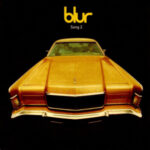 The Damned, one of the first punk rock bands to emerge from the UK, played a pivotal role in shaping the early punk movement. Known for their frenetic energy, irreverent attitude, and pioneering spirit, The Damned left an indelible mark on the music world. Their journey from the gritty streets of London to international acclaim is a testament to their influence and resilience. This article explores the history of The Damned, tracing their origins, rise to fame, influential albums, and enduring legacy.
The Damned, one of the first punk rock bands to emerge from the UK, played a pivotal role in shaping the early punk movement. Known for their frenetic energy, irreverent attitude, and pioneering spirit, The Damned left an indelible mark on the music world. Their journey from the gritty streets of London to international acclaim is a testament to their influence and resilience. This article explores the history of The Damned, tracing their origins, rise to fame, influential albums, and enduring legacy.
Origins and Formation
The Damned were formed in London in 1976, at the height of the burgeoning punk rock scene. The band’s original lineup consisted of Dave Vanian (vocals), Captain Sensible (guitar), Brian James (guitar), Rat Scabies (drums), and Captain Sensible’s school friend, the bassist. Their formation was driven by a shared passion for punk rock’s rebellious ethos and a desire to break away from the conventional music scene of the time.
Brian James, the band’s primary songwriter, was a crucial figure in The Damned’s early days. His vision for a raw, energetic sound and his knack for catchy, anthemic riffs set the tone for the band’s music. The original lineup was characterized by a mix of punk rock aggression and a touch of theatricality, with Dave Vanian’s gothic, vampire-like persona adding a unique flavor to the band’s image.
The Damned’s early shows were marked by their energetic performances and a defiant attitude that resonated with the burgeoning punk audience. Their music, characterized by fast tempos, aggressive guitar riffs, and rebellious lyrics, quickly gained a following in London’s underground scene.
The Rise to Fame
The Damned’s rise to fame began with their first single, “New Rose,” released in October 1976. “New Rose” is widely considered to be the first punk rock single ever released, making The Damned one of the pioneering bands of the genre. The single’s raw sound and energetic delivery captured the essence of punk rock and set the stage for the band’s future success.
“New Rose” was followed by the release of their debut album, Damned Damned Damned, in February 1977. The album was a critical and commercial success, showcasing the band’s frenetic energy and punk rock sensibilities. Tracks like “Neat Neat Neat” and “I Fall” became anthems of the punk movement, and the album established The Damned as one of the leading bands in the genre.
The success of Damned Damned Damned was followed by a period of intense touring and live performances. The Damned became known for their electrifying live shows, characterized by their high-energy performances and chaotic stage presence. Their reputation as one of punk rock’s most exciting live acts was solidified during this period, and the band’s popularity continued to grow.
Influential Albums and Evolution
Following the success of their debut album, The Damned released their second album, Music for Pleasure, in 1977. While the album did not achieve the same level of commercial success as its predecessor, it continued to showcase the band’s unique sound and musical evolution. Music for Pleasure featured a mix of punk rock and new wave influences, reflecting the band’s willingness to experiment with their sound.
In 1979, The Damned released The Black Album, an ambitious and eclectic work that marked a significant departure from their earlier punk sound. The album featured a mix of punk rock, gothic rock, and psychedelic influences, showcasing the band’s willingness to push the boundaries of their genre. The Black Album was well received by critics and fans alike, and it demonstrated The Damned’s ability to evolve and innovate within the punk rock framework.
The early 1980s saw further changes in The Damned’s sound and lineup. Captain Sensible, who had become known for his flamboyant stage presence and humorous persona, released a successful solo album, Women and Captains First, in 1982. The success of Sensible’s solo work led to tensions within the band, and he left The Damned in 1984.
Despite Captain Sensible’s departure, The Damned continued to record and tour with new members. The band’s evolving sound and lineup changes reflected their ongoing commitment to experimentation and innovation. Albums like Phantasmagoria (1985) and The Black Album showcased the band’s ability to adapt and evolve, while still retaining their punk rock roots.
Internal Struggles and Reunions
The Damned’s journey was not without its share of internal struggles and conflicts. The band’s lineup changes and personal differences often led to tensions and disagreements. Despite these challenges, The Damned remained resilient and continued to push the boundaries of punk rock.
The band’s early lineup, which included Brian James, Rat Scabies, and Captain Sensible, saw several changes over the years. Brian James left the band in 1978, and his departure marked the beginning of a period of instability for The Damned. The band went through various lineup changes, including the addition of new members like Rat Scabies and Captain Sensible.
Despite the challenges, The Damned’s influence on punk rock and their continued success in the face of adversity cemented their status as one of the genre’s most important bands. Their ability to adapt and evolve while maintaining their punk rock spirit was a testament to their creativity and resilience.
In the late 1980s and early 1990s, The Damned experienced a resurgence in popularity. The band reunited with the original lineup, including Captain Sensible, for a series of successful tours and live performances. The reunion was marked by a renewed energy and a return to the band’s punk rock roots, much to the delight of fans.
The Damned’s reunion was followed by the release of new material, including the album The Light at the End of the Tunnel (1987). The album received positive reviews and showcased the band’s continued creativity and ability to connect with a new generation of fans. The Damned’s return to the spotlight was a testament to their enduring legacy and their impact on the punk rock genre.
Legacy and Influence
The Damned’s influence on punk rock and the broader music landscape is undeniable. As one of the first punk bands to achieve mainstream success, The Damned played a crucial role in shaping the genre and paving the way for other punk rock acts.
The band’s innovative approach to punk rock, characterized by their energetic performances, catchy melodies, and willingness to experiment, has inspired countless musicians and bands. The Damned’s influence can be seen in the work of subsequent punk rock bands and artists, as well as in the development of related genres like gothic rock and new wave.
The Damned’s impact on music history is also reflected in their critical acclaim. Albums like Damned Damned Damned and The Black Album are widely regarded as seminal works in the punk rock genre, and the band’s contributions to the genre have been recognized by critics and fans alike.
The Damned’s ability to adapt and evolve over the years, while maintaining their punk rock spirit, has ensured their place in music history. Their willingness to experiment with their sound and push the boundaries of the genre has made them a lasting and influential force in the music world.
Conclusion
The history of The Damned is a testament to the power of creativity, innovation, and resilience. From their early days in the London punk rock scene to their continued influence on the music world, The Damned’s journey is a reflection of their impact on punk rock and their enduring legacy.
The band’s pioneering spirit, marked by their energetic performances, catchy melodies, and willingness to experiment, has left an indelible mark on the music world. Their influence on punk rock and related genres, as well as their ability to adapt and evolve over the years, has ensured their place in music history.
The Damned’s story is a reminder of the power of music to inspire, challenge, and connect people. Their contributions to punk rock and their enduring impact on the genre make them one of the most important and influential bands in the history of rock music.
This post has already been read 197 times!









